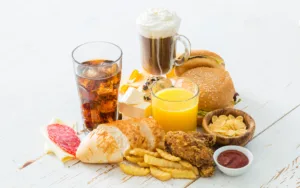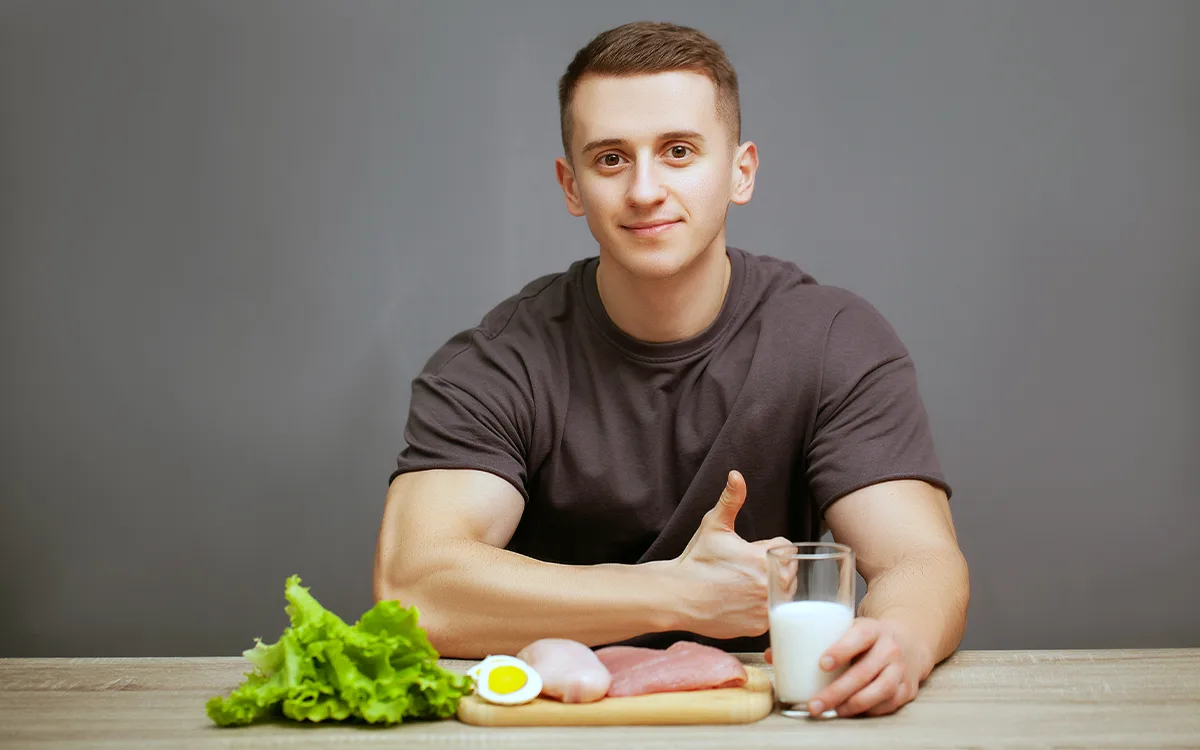Building muscle requires more than just lifting weights—it starts in the kitchen. The foods you eat play a crucial role in helping maintain muscle mass and supporting recovery after workouts. Protein-rich options, healthy fats, and complex carbohydrates all contribute to muscle gain. At the same time, certain foods can hinder progress and lead to unwanted weight gain or discomforts.
This guide highlights the best muscle-building foods plus foods to avoid for optimal results.
Best Muscle-Building Foods
- Lean Protein Sources
Protein is essential for muscle repair and growth. It contains amino acids, which are the building blocks of muscle tissue. Here are some of the best protein-rich foods:
- Chicken Breast – A staple for muscle-building diets, chicken breast is packed with high-quality protein, providing around 31 grams of protein per 100 grams.
- Egg Whites – Low in fat and high in protein, egg whites supply about 11 grams of protein per 100 grams.
- Greek Yogurt – This dairy option contains both fast- and slow-digesting proteins, making it excellent for post-workout recovery.
- Protein Powder – A convenient way to meet daily protein needs, protein powders derived from whey, casein, or plant-based sources help maintain muscle mass.
- Plant-Based Protein Options
For those following a plant-based diet, there are plenty of excellent protein sources:
- Lentils and Chickpeas – Packed with protein and complex carbohydrates, they help sustain energy levels.
- Quinoa – A complete protein source that provides all nine essential amino acids.
- Tofu and Tempeh – Soy-based proteins that help with muscle gain and provide essential nutrients like iron and calcium.
- Healthy Fats for Muscle Support
Not all fats are bad—some support overall muscle maintenance and energy levels:
- Avocados – High in monounsaturated fats and rich in vitamins and minerals.
- Nuts and Seeds – Almonds, walnuts, chia seeds, and flaxseeds provide healthy fats and protein.
- Fatty Fish – Salmon and mackerel are excellent sources of omega-3 fatty acids, which help support muscle recovery.
- Complex Carbohydrates for Energy
Carbohydrates help sustain energy during workouts and aid in recovery:
- Sweet Potatoes – A nutrient-dense carb source loaded with fiber and vitamins.
- Brown Rice – A slow-digesting carb that provides steady energy.
- Oats – Great for breakfast or pre-workout meals, oats contain fiber, protein, and essential nutrients.
- Vitamins and Minerals for Muscle Function
In addition to macronutrients, micronutrients help maintain muscle function:
- Leafy Greens – Spinach and kale are rich in iron and magnesium.
- Bananas – High in potassium, which supports muscle contractions and recovery.
- Dairy Products – Contain calcium and vitamin D for bone and muscle health.
Foods to Avoid

- Fried and Processed Foods
Fried foods contain high amounts of unhealthy fats, which can lead to inflammation and discomforts. Processed foods often contain added sugar and empty calories that do not support muscle gain.
- Sugary Drinks and Snacks
Excess sugar intake can lead to unwanted fat gain and energy crashes. Avoid soda, candy, and pastries that provide little to no nutritional value.
- Excess Saturated Fats
While some fats are beneficial, excessive saturated fats can contribute to health issues. Limit high-fat cuts of red meat, butter, and processed cheese.
- Alcohol
Alcohol can interfere with muscle recovery and hydration. Limiting intake can help maintain muscle mass.
- Refined Carbohydrates
White bread, pasta, and pastries can lead to quick spikes and crashes in f, making them less ideal for sustaining energy levels.
Conclusion
A well-balanced diet rich in lean proteins, healthy fats, and complex carbohydrates supports muscle growth and recovery. Avoiding processed, fried, and sugary foods can help enhance your progress and keep you feeling your best. Making mindful food choices ensures that your hard work in the gym translates into long-term muscle maintenance and strength.

